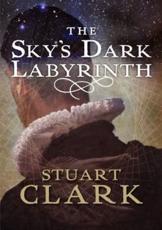"Truth is the daughter of time, and I feel no shame in being her midwife."
Johannes Kepler
Religious conspiracy, coded letters, a barely sane astronomer with a clairvoyant dwarf, allegations of heresy and witchcraft...at first glance Stuart Clark's new book really does sound like something from the Dan Brown school of writing. That's probably a little unfair on both authors, because in many ways this is the exact opposite of Brown's modus operandi; the real challenge here is picking out the parts of the story that aren't essentially true.
Clark, you see, is not a novelist who has decided to dip his toe into the world of astronomy, he's a PhD holding astrophysicist who specialises in science journalism, which goes a long way to explaining the historical veracity underlying The Sky's Dark Labyrinth.
It's personal confession time...I know this story quite well, enough to hold my own view on events and argue them in front of a real historian without blushing too much...and Clark's account is superb. The spat between Galileo and the Catholic church is infamous, with the general perception being that Galileo had the temerity to suggest the Earth orbits the Sun, and was promptly tried and imprisoned for his trouble. The truth, when you dig into it, is a little more complicated. Clark takes the main protagonists, Tycho Brahe, Johannes Kepler and Galileo Galilei, and skilfully picks apart three very different men with equally different ideas about how the universe works, against a vivid backdrop of southern Europe at a time of huge political and religious upheaval. Kepler, with his remarkable mathematical ability, tries to tease the data he needs from Tycho's private and closely guarded collection. Galileo turns the newly invented telescope towards the skies, and the church struggles to maintain their authority over a world in flux.
It's a well balanced and fair account, far removed from a naive religion versus science debate. The greatest astronomers in history have family problems, crises of faith, run out of money and even cast horoscopes on the side while the church does its best to research and adapt to new ideas without bringing the whole house of cards crashing down under the weight of its own logic.
It's one of the great true stories of human imagination and inspiration, a fascinatingly detailed history, and a cracking good read.
Oh, OK, I give up. What's a crap astronomical pun on "brilliant"?
Stellar?
A super-nova-of-a-novel?
A work of gravitational gravitas?
Suffice to say, great book.
As a bonus, it's the first part in a trilogy, the following parts covering Newton and Halley, then Einstein and Hubble, tying together four hundred years of cosmology. I can't wait for a TV series, ideally directed by Joss Whedon.
Published 1st of May 2011
The Sky's Dark Labyrinth
Stuart Clark
Polygon (Birlinn)
ISBN: 9781846971747
(Review based on an uncorrected proof supplied by the publisher)


Love your review. I'm just reading this book and saw Dr. Clark last week here in Toronto. Fabulous speaker and wonderful book. I'm recommending it to everyone!
ReplyDelete